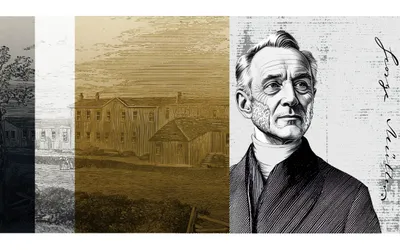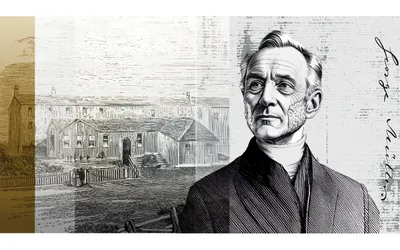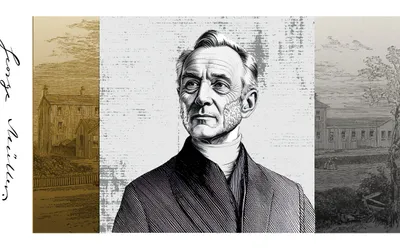Rejoice in the Lord always. I will say it again: Rejoice! Let your gentleness be evident to all. The Lord is near. Do not be anxious about anything, but in every situation, by prayer and petition, with thanksgiving, present your requests to God. And the peace of God, which transcends all understanding, will guard your hearts and your minds in Christ Jesus.
Finally, brothers and sisters, whatever is true, whatever is noble, whatever is right, whatever is pure, whatever is lovely, whatever is admirable—if anything is excellent or praiseworthy—think about such things. Whatever you have learned or received or heard from me, or seen in me—put it into practice. And the God of peace will be with you.
I rejoiced greatly in the Lord that at last you renewed your concern for me. Indeed, you were concerned, but you had no opportunity to show it. I am not saying this because I am in need, for I have learned to be content whatever the circumstances. I know what it is to be in need, and I know what it is to have plenty. I have learned the secret of being content in any and every situation, whether well fed or hungry, whether living in plenty or in want. I can do all this through him who gives me strength. (Philippians 4:4-13)
Paul was a person who knew what it was to face constant hardships in his walk with Jesus. He had no personal comforts—no home of his own. No wife or children. He was constantly on the road, and while on that road he faced robbers, harsh weather, shipwrecks and all manner of trouble. Relationally he was in constant turmoil as he suffered from betrayals, slander, gossip, and even physical assaults and attempted murder. By the time of his letter to the Philippians, a portion of which is quoted above, he was under arrest in Rome, awaiting a possible death sentence by Emperor Nero.
And yet, for all these troubles and from a prison cell, Paul is constantly speaking of the joy that is his in the Lord Jesus and calling his fellow Christian to share in that joy. At the end of his letter to the Philippians, he shares his "secret" to joy and contentment in any and every situation. He shares this with us because he wants us to imitate him so that we can share in that same joy—as he says: "Whatever you have learned or received or heard from me, or seen in me—put it into practice. And the God of peace will be with you" (Philippians 4:9, emphasis added). And we would be wise to do so!
REJOICE!
Paul's first admonition to us is to "Rejoice in the Lord always" (Philippians 4:4a, emphasis added). Not just when we feel like it. Not just when we're “in the mood.” There is always a good reason to rejoice in the Lord. If no other reason than for the forgiveness of our sins and eternal salvation would give us cause to praise God! So why does Paul have to tell us to rejoice? Shouldn't it be a natural response of our love for God?
Yes, of course it should be. But the fallen nature of man is such that we find it much more natural to complain and grumble than to rejoice. Thus, we must be reminded to choose joy rather than bitterness of spirit. To choose thankfulness rather than ingratitude. It is not enough for us merely to cease grumbling. Our murmurs and complaints and accusations must be replaced with joy of the Spirit expressed through rejoicing!
THE PEACE OF GOD
The peace of God is available to every believer who wants it. So then why are we so often anxious and lack peace? Paul's “formula” for the peace of God gives us the answer:
PRAYER & PETITION
The “door” out of the prison of anxiety is through prayer and petition. Simple enough, right? Well, it should be, but as already mentioned, we find that our selfish, carnal nature rebels against the call to prayer. We would rather accuse God and others for the anxiety-inducing situation we find ourselves in rather than accept the circumstance and humbly seek God in prayer for His will and the way out. As the old hymn goes:
"O what peace we often forfeit, O what needless pain we bear, All because we do not carry Everything to God in prayer!"1
WITH THANKSGIVING
Prayer and petition may be the door out of anxiety's prison, but the key to that door is thanksgiving. To be quite frank, the ingratitude of our hearts towards God is disgusting. Without realizing it our attitude is so often: "Sure, you died on the cross for my sins before, but what will you do for me now?!" It is from this narcissistic, ego-centric, ingratitude that comes our utter thanklessness. We so often withhold our thanks from God unless and until He makes us happy each day. And if He fails to make us happy, we withhold our thankfulness and offer Him only accusation and coldness.
As thanklessness matures it begins to embody what is warned about in Hebrews 3-—we begin to put God to the test. Every problem we face is seen as a sign of His lovelessness, or His disinterest in us. We begin to ask questions, like, "Is this worth it?" We forget the great love and sacrifice of Jesus Christ and so our problems are no longer "light and momentary" in light of eternity, but instead, feel "overwhelming and unovercomable."
Brothers and sisters, learn to count your blessings in Jesus Christ. Learn to put His love before your eyes each day, and you will never exhaust your storehouse of things to be thankful for. So many of us remain locked in the prison of anxiety because our emotional stubbornness and spiritual pride refuse to allow us to give thanks until we have everything we want, or at least have emotional peace. Learn, by the Spirit of God, to give thanks when you feel awful and you will always have the key to escape anxiety.
HEALTHY THINKING
Next, Paul teaches us to think about true things, noble things, right things, pure things, lovely things, admirable things, things that are excellent and praiseworthy. You see, we have had the horrid tendency to meditate on our fears and problems and not on God or the works of His hands. As the psalmist declares, "On the glorious splendor of your majesty, and on your wondrous works, I will meditate" (Psalm 145: 5). After we have offered to God our prayer and petition with thanksgiving, we must resist the urge to dwell on the things we are worried about. We must choose to delight ourselves in God and His works, which will set our minds free.
STRENGTH IN THE LORD
Finally, Paul uses his own life and suffering as an example to us in how to have God's peace in the midst of trials. You see, worldly, fleshly “peace” comes from circumstances—and only favorable circumstances at that. We often, sometimes subconsciously, make little covenants like, "I will not have peace until _____________ happens in my life," or, "I won't have peace until _____________ repents to me!" or "...changes his/her behavior" or "Until I'm married" or "Until I have a good career" or "Until I have an iPhone..." and so on and so forth.
You see, we think we need good external circumstances in order to have internal peace. This is a lie from the pit of Hell. In Christ, we are not slaves to external circumstances. Our peace, as we learn in Galatians, is a fruit of the Holy Spirit, not the result of favorable conditions. Therefore, when we lack peace and joy, the problem is solely in our relationship with God and has nothing to do in reality with our circumstances (even if we blame them).
We must decide, like Paul, that God is our strength. Not sleep. Not money. Not food. Not a good schedule. Not a marriage. Not family. Not an enjoyable job. Nothing external. Our strength comes from God, and we have access to Him in any and every circumstance, and, therefore, we can be content. As the author of Hebrews exhorts us: Keep your lives free from the love of money and be content with what you have, because God has said, “Never will I leave you; never will I forsake you” (13:5).
So, dear brothers and sisters, if you want the peace that comes from Christ that Paul had, then we all need to follow in his example. If we try to have peace our own way and forsake any of these things, we will only become living proof that peace is found nowhere except in Jesus Christ.
But the Lord Jesus asks us the same question He asked in the Gospels: “Do you want to get well” (John 5:6)? So many of us have a love/hate relationship with our anxiety and feelings of being overwhelmed. They allow us to think of ourselves as the victim. They allow us to harbor doubts and accusations (against God and man) without feeling convicted because we feel entitled to it in our "struggles." We can push off the blame for our faithlessness to others, and can, at times, even feel justified in questioning the very goodness of God, thus sinning a most grievous sin.
So, do you want to get well? Paul, by the wisdom of the Spirit, is showing us the path to healing. Or, as is sadly often the case, are our chains a little too comfortable? Is that prison cell a little too familiar? Is the darkness less frightening than that light of freedom? We answer these questions by what we do, not by what we say. I pray that any of us struggling with anxiety, discontentment and fear will take the way out: It’s worth it!
To hear more on the subject, please listen to the following messages:
David Pawson: Philippians 1 2 and Philippians 2 3
Francis Chan: Removing Anxiety 4 and Don't Be Surprised 5
Corrie ten Boom: Total Surrender 6
Joseph M. Scriven, “What a Friend We Have in Jesus,” (Public domain, 1855).
David Pawon, “Unlocking the Bible: Philippians & Philemon 1,” 42:38, February 5, 3015, https://www.youtube.com/watch?v=OEMr3lNzMDs&ab_channel=DavidPawson-Official
----, “Unlocking the Bible: Philippians & Philemon 2,” 35:56, February 5, 3015, https://www.youtube.com/watch?v=uj6VvtIQBIU&ab_channel=DavidPawson-Official.
Francis Chan, “How To Remove The Anxiety,” 35:09, March 27, 2017, https://www.youtube.com/watch?v=Q4YMLVn85y0&ab_channel=GODISSAVIOR
----, “Beloved, Do Not Be Surprised At The Fiery Trial!”, 36:04, February 22, 2011, https://www.youtube.com/watch?v=ZCqVMj0K87Q&ab_channel=venetable
Corrie ten Boom, “Total Surrender,” 26:59, June 9, 2016, https://www.youtube.com/watch?v=ywCf6obNmTY&ab_channel=WorldwideIndexofSermons




